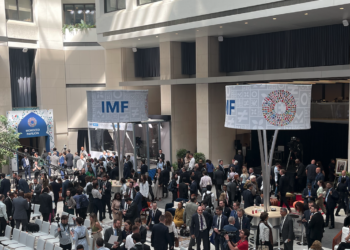The Lagos Chamber of Commerce and Industry (LCCI) has projected that consumer demand and private sector investment would remain weak in 2020.
The Director-General of the chamber, Muda Yusuf, recalled that the World Bank and the International Monetary Fund (IMF) had predicted that Nigeria’s growth rate to be 2.1% and 2.5%. This he said was below Nigeria’s population growth rate of 3%; adding that per capita income would keep contracting and as such, it would amount to making Nigerians poorer.

The LCCI boss made known that the trade war that has been brewing between the United States and China for a while now would no doubt have adverse impact on the economy this year. Yusuf also noted that oil price fluctuations would affect the Nigerian economy.
Yusuf’s words: “Amidst continued global slow growth and trade wars, we expect growth to be slow, albeit stable in 2020 in the face of implementation of recent policy measures by government.
“We reiterate that government as a matter of urgency must intensify efforts in diversifying the productive base to other high-impact and growth-driving non-oil sectors like agriculture, manufacturing and services.”
[READ MORE: LCCI wants taxes scrapped on solar equipment, says its alternative source to power)
Speaking further, as reported by New Telegraph, Yusuf proffered solutions that could mend the economy this year. He said for Nigeria to achieve a strong growth rate of about 6-8%, economic managers and policymakers must embrace structural reforms such as deregulating the oil and gas sector.
He said the multiple exchange rates must be harmonised; redundant state assets should be privatised and also the infrastructural problems of poor power supply and bad roads must be fixed to effectively tackle poverty and unemployment in the country.
Why this matters: Yusuf noted that no economy could thrive without a good composition of the elements stated above. Hence, he called on the government to create more opportunities for its rapidly growing population.
The Director-General lamented the high possibility that inflation would trend higher in 2020. Yusuf added that this is as a result of factors such as the new minimum wage, which will stimulate aggregate demand; continued closure of the land border, higher VAT rate of 7.5% and early disbursement of funds for budget implementation.























